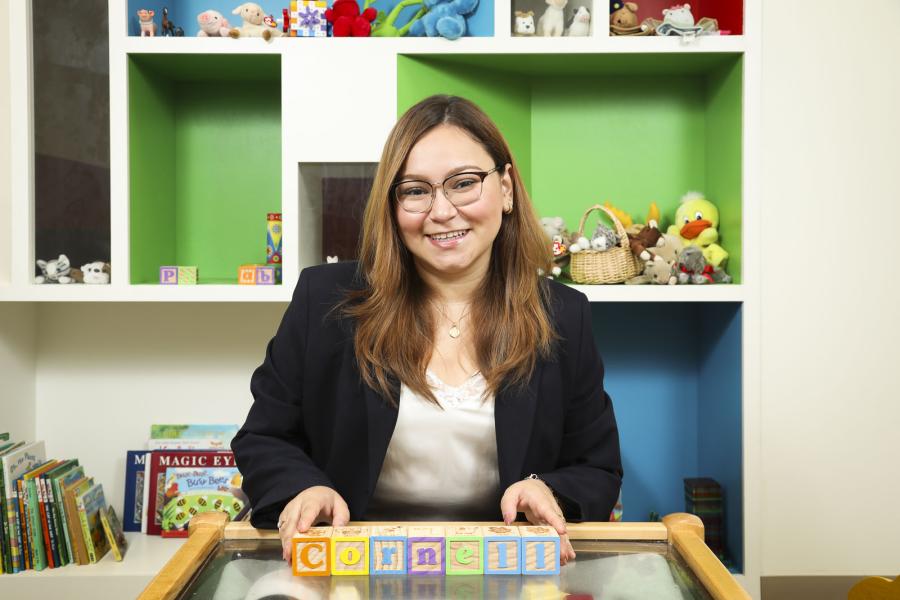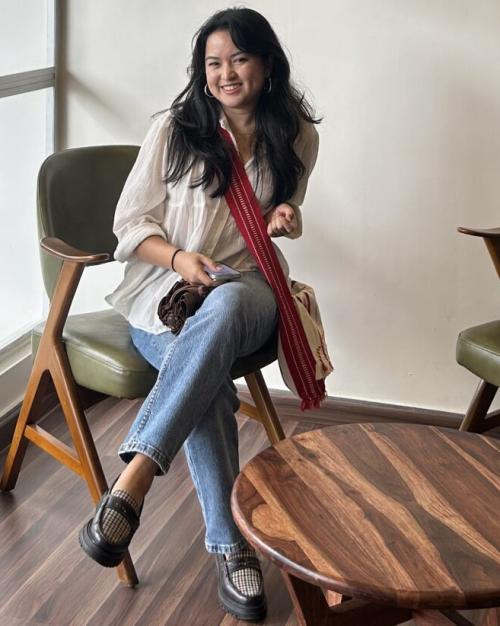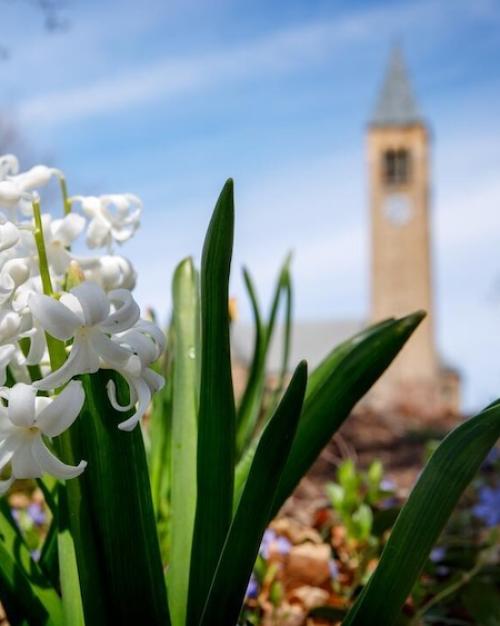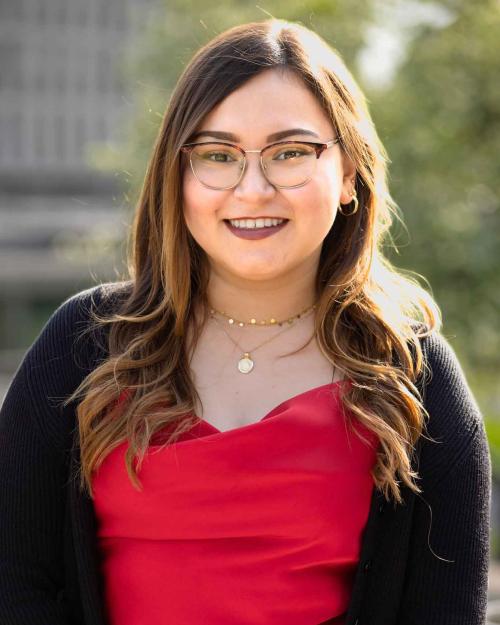Fátima D. Martínez
Psychology
South Gate, Calif.
Why did you choose Cornell?
I chose Cornell because of the academic rigor and resources it offered me through the Pre-Collegiate Summer Scholars Program (PSSP) before even stepping on campus. PSSP helped me not only become familiar with the academic rigor of Cornell, but also exposed me to the resources available to me as a first-generation college student. My participation in this program made it clear to me that I had faculty and the university rooting for my success even before meeting me in person, making my transition to Cornell smoother as I was traveling across the country alone and starting college during the pandemic. It was clear then, as it is now, that the university truly embodies, "any person, any study."
What have you accomplished as a Cornell student that you are most proud of?
As a Cornell student, the College of Arts & Sciences has always made sure that they provide me with the support and resources I need to grow personally and professionally. It was through my participation in the A&S Pathways Internship Program that I was able to start my professional journey as an undergraduate researcher in Cornell's Play and Learning Lab. For the past two years, I have evaluated the development of mental rotation abilities and non-spatial abilities (processing bias, motor cognition) of children ages 2-4. I was also able to continue my research experience while studying abroad at the University of College London's Deafness Cognition and Language Research Centre, where I evaluated the relationship between language, reading and literacy skills of deaf and hard-of-hearing preschool children. My research experience has allowed me to become a Ronald E. McNair Scholar while creating valuable connections in academia to become a better scholar and researcher. My involvement in the Office of Academic Diversity (OADI) has also been one that has been truly rewarding as I was able to find others like me! My position in OADI as a Peer Mentor Leader has allowed me to create a space on campus where others can find a diverse community and help others navigate Cornell (personally and professionally). My involvement in OADI has also been one of the reasons why I want to be a psychologist in the future who serves my underrepresented community.

How have your beliefs or perspectives changed since you first arrived at Cornell?
Stepping into Cornell, I had an idea of who I was but not in its entirety. When you grow up, you are molded by your culture and religious upbringing that influences your household. However, I was sort of lost once I stepped foot on Cornell as I kept asking myself who I wanted to be and who I really was, questioning if the beliefs and perspectives I had were truly mine. This journey of exploration and self-discovery pushed me to want to answer these questions, stumbling upon on-campus resources like the Office of Spirituality and Meaning-Making, Cornell Catholic, Cru and the Office of Academic Diversity during my time at Cornell. Here, I was able to find others who were not only like me but also very different. My participation in these spaces made me more confident in who I am and have a clearer picture regarding the person I want to be as I made lifelong relationships across campus.
Who or what influenced your Cornell education the most?
The academic advisors at Cornell have influenced my education the most throughout my undergraduate experience. I have been fortunate enough to have developed interpersonal relationships with advisors in Arts & Sciences and also in the Office of Academic Diversity. The development of these relationships has allowed advisors, and myself, to understand who I am and what I look for, making my experience at this university more fulfilling. It was through these relationships that I was able to come across opportunities such as the A&S Pathways Internship Program, Ronald E. McNair Scholars Program and the OADI Peer Mentorship Program. Without them, I would not know how to navigate Cornell as a first-generation Latina.
Where do you dream to be in 10 years?
In 10 years, I hope to be a licensed clinical psychologist who serves adolescents and young adults in low-socioeconomic communities to provide them with the necessary help and resources. I would love to not only represent my community as a researcher, and advocate for them, but also help them. I also hope to have a house and three kids of my own.
Every year, our faculty nominate graduating Arts & Sciences students to be featured as part of our Extraordinary Journeys series. Read more about the Class of 2024.




